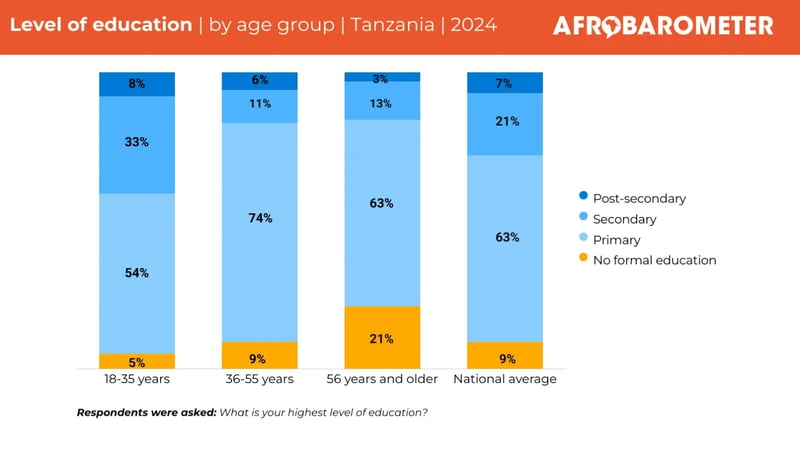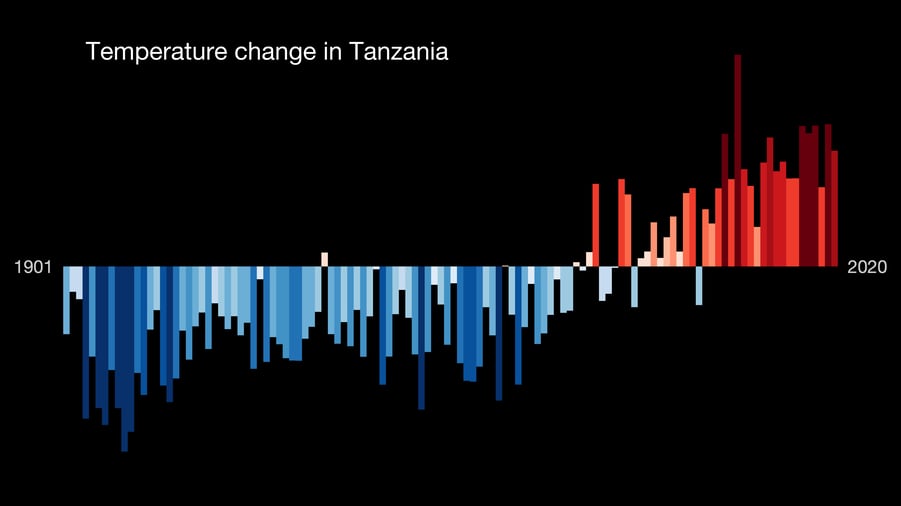- Blog
- treedom world
- A Challenge...
A Challenge Called Tanzania
Nov 06, 2025 | written by: Tommaso Ciuffoletti
“The greatest challenge lies in reducing inequality and creating jobs for millions of young people. This is what will determine the country’s political resilience in the coming years. The pressure for change from younger generations will only continue to grow.”
In a recent post on this blog dedicated to Tanzania, we wrote those words. It was July 11 — and we could not have imagined that the pressure for change would not need years to manifest, but only a few weeks.
In this article, we’ll look at what’s happening today in Tanzania: the political and social crisis that has unfolded after the October 29, 2025 elections; the country’s demographic and economic landscape that forms the backdrop of this phase; a brief recent history to understand how we got here; and finally, why Treedom’s work in Tanzania takes on a particularly meaningful role at this moment.
It’s a journey that blends data, testimony, and vision — because planting trees is not only about caring for the planet, but also about sowing resilience, community, and future.
The News These Days
Tanzania is currently swept by a wave of tension that could reshape its political and social trajectory. The general elections held on October 29, 2025 — meant to mark a step toward democratic consolidation — have instead become a moment of deep confrontation between the will of the voters and the exercise of power.
Current president Samia Suluhu Hassan was declared the winner with around 97–98% of the vote, after the two main opposition candidates were disqualified. Protests erupted immediately, especially in Dar es Salaam and other cities: road blockades, petrol stations and police stations set on fire, violent clashes with police and army forces, curfews, and internet restrictions.
The death toll remains highly contested. The opposition claims there may be hundreds — perhaps over 700 deaths — within just a few days of unrest. The United Nations and other international organizations have expressed grave concern, though without confirming any official figures. Security forces reportedly used tear gas and live ammunition, and widespread internet blackouts have limited communication across the country.
Politically, the main opposition party, Chama Cha Demokrasia na Maendeleo (Chadema), called the results “an open coup against the will of the people”, refusing to recognize their legitimacy. The regional body Southern African Development Community (SADC) noted that in many areas “voters were not able to freely express their democratic will.”
In this climate, the question many are asking is: what happens next? The protests reveal a growing frustration, especially among young people, who reject a system where participation feels symbolic and political competition tightly controlled. As the Institute for Security Studies (ISS) observes: “The protests show that citizen-driven power, if sustained, could pressure the government toward meaningful reform.”
For Treedom, which has deep roots in Tanzania, this context becomes one of the most critical to follow. On one hand, some of our project areas are affected by the broader tensions, though still maintaining relative safety; on the other, the acceleration toward change compels us to closely monitor developments and strengthen our commitment to helping rural communities build economic and social resilience.
It’s no longer enough to call Tanzania a “growing country” or an “emerging market.” This is a place where sustainability, community participation, and collective meaning have political, social, and ethical weight.
Context: Demography, Society, Economy
To grasp the scale of what’s happening — and the context in which Treedom operates — it’s useful to take a brief look at Tanzania today.

Population and social structure
Tanzania is one of East Africa’s most populous nations. According to the CIA World Factbook, in 2024 about two-thirds of the population was under 25. The median age is around 19, and population growth remains high — a potential force for transformation, but also a massive challenge if not matched by opportunities.
Economy
In recent years, Tanzania has seen steady though moderate growth. In 2024, real GDP rose by about 5.6%, according to Switzerland’s SECO report. The country is rich in natural resources, with agriculture employing a large share of the workforce and tourism on the rise, though a large informal economy persists.
Despite this progress, inequality remains high: productivity lags, structural transformation is slow (the shift from agriculture to higher-value industries and services), and poverty is still widespread. Inflation, however, has remained relatively low — around 3.2% in early 2025.
Society, environment, and development
Tanzania also holds vast potential for sustainable development: large tracts of arable land, remarkable biodiversity, and rural communities for whom the land remains a vital resource. Yet rapid population growth, the need for infrastructure, and gaps in education and healthcare call for a development model that’s not only quantitative but qualitative.
In short: Tanzania is at a critical turning point — a country where what it becomes will depend greatly on what we do now.

Recent History in brief
Understanding today means looking back at the path that led here.
After decades of rule by the Chama Cha Mapinduzi (CCM) — in power since independence — Tanzania entered a period of cautious openness in the early 2020s. The 2021 election of Samia Suluhu Hassan, who had assumed the presidency after the death of her predecessor John Magufuli, sparked hopes for greater pluralism and a more open climate.
In recent years, however, many authoritarian practices have resurfaced: exclusion of opposition parties, limits on press freedom, and repression of protests.
The 2025 elections marked a turning point. With opposition leaders barred, the campaign was held under heavy restrictions, and the president’s near-total victory — 97–98% — evoked scenarios where democratic competition has effectively been neutralized. The ensuing protests show that for many Tanzanians, the threshold of tolerance has been crossed. As some analysts put it, “Either we enter a completely new paradigm — or a completely new level of impunity and civil disobedience.”
For years, Tanzania was rightly seen as a positive example: politically stable, economically promising, and an active player in regional cooperation. But that stability is now under strain. The energy of young people, rural communities, and civil society is colliding with entrenched structures resistant to change.
Treedom’s Work in Tanzania
.jpg?width=901&height=340&name=DSC05460%20(1).jpg)
In this complex, challenging, and defining moment, Treedom’s work takes on meaning beyond environmental impact.
We have been present in Tanzania for years. We have planted roots there — literally and figuratively. Those roots represent the trees we grow across the country with our community, improving soils, providing oxygen, and supporting local livelihoods. But they also symbolize the social fabric we help nurture: participation, awareness, and shared responsibility — values that become even more essential when a nation faces fracture.
Consider these points:
-
Our model, which directly involves local communities, farmers, and families, helps build a sense of “we” that depends not only on state institutions or the market, but on a network of actors working together.
-
In times of social tension, environmental sustainability becomes an anchor of trust: investing in green growth means investing in the future — not only for the planet, but for people and their communities.
-
Civil society, responsible businesses, and cooperation can open small but meaningful spaces for change. Real transformation starts with culture — with how communities see themselves and act together.
Because Treedom is already embedded in Tanzania, we hold an advantage of knowledge, trust, and empathy. In a delicate time like this, that trust matters. It’s both a responsibility and an opportunity: to give visibility to the positive stories of communities planting trees while the country stands at a historical crossroads.
At a time when roots — political, social, cultural — risk being severed, we continue to plant them: in the soil, in time, and in the hope of future generations.
And if Tanzania truly is, as we once called it, “a country of the future,” then our gesture carries an even deeper meaning: not just gifting a tree, but taking part — day by day, locally — in building a future that is far from guaranteed.

